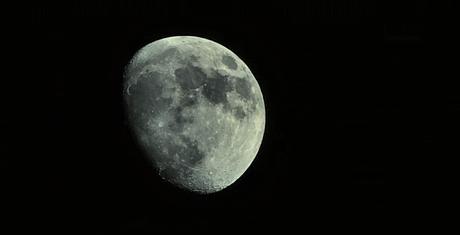Vonnegut's sister Alice had died of cancer in 1958 just two days after her husband had been killed in a railway accident. Kurt and his wife, who already had three children of their own, adopted Alice's three orphaned sons. Twenty years further on, Slapstick emerged, loosely science-fiction and largely about Vonnegut's relationship with his lost sister. In later years, he conceded it was not one of his best efforts (assigning it a retrospective D), but at the time he had this to say about it:
"This is the closest I will ever come to writing an autobiography. I have called it Slapstick because it is grotesque, situational poetry - like the slapstick film comedies, especially those of Laurel and Hardy, of long ago. It is what life feels like to me."
Indeed, he dedicated the book to Arthur Stanley Jefferson and Norvell Hardy. Life as bizarre and cruelly comedic just about summed up Vonnegut's unflinching world-view and yet he was (in my estimation) supremely principled and humane, believing that we didn't necessarily have many positive factors going for us as a species apart from an ability to be sociable and kind to one another.

Alice doesn't live here anymore
My sole reason for dragging mention of Slapstick (or Lonesome No More!) into today's blog is because one of the central concepts of the novel was a plan to limit loneliness.Kurt and his sister Alice, transfigured in the book as the twins Wilbur and Eliza Swain, hatched a notion designed to put an end to the American people's loneliness and sense of alienation. They proposed that all citizens should be assigned a new middle name made up of a random natural object coupled with a random number between 1 and 20 (e.g. Stephen Tangerine-11 Rowland). Everyone with the same randomly-assigned middle name would become de facto cousins and everyone with the same middle name and number would become siblings, thus creating great supra-natural families with a duty of companionship to each other.
Wilbur Swain ran for the US presidency under the slogan Lonesome No More! and with the twins' scheme as the basis of his manifesto - an interesting idea, in that it would transcend culture, ideology, race. It was a winning ticket. Swain was elected in a landslide victory with a mandate to Make America Relate again. Even as the rest of western civilization collapsed under the scourge of its own careless and destructive greed, survivors in the USA strove selflessly to help their 'cousins' and 'siblings' to feel some sense of connection, worth and hope for the future - a sustaining group mentality.
Today's somewhat whimsical poem materialised after going to see the movie First Man at my local Odious Cinema this evening. The film, about Neil Armstrong and the progress of NASA's program to achieve a successful manned landing on the moon, made rivetting and at times uncomfortable viewing but I can recommend it. By coincidence, there was the afore-mentioned Kurt Vonnegut in some original black and white newsreel from the era berating the huge sums of money that the USA was ploughing into the 'space race' - he reckoned that just a fraction of it could have been used to make New York City a more habitable place.

I'm not usually a fan of personification, but it just happened. This may not be the poem's final form. Let me know what you think...
Orphaned Moon
Antoine called it right.
Space is the loneliest place.
The Milky Way's
light-years-away lustre
in reality a dysfunctional cluster
of fast-diverging gas and dust,
while closer to home
the monochrome moon
looms cold and lonely,
a bride waiting to be groomed.
Rejected at birth,
if indeed Earth were ever
her mother at all
(oh, she has her doubts),
the orphaned moon
has never dared to show
her still more scarred
and darker face, as though
to do so would be
an unpardonable fall from grace.
Imagine then her apprehensive thrill
when the first astronauts
traversed the invisible umbilical
that ties her still to Earth
and landed on the bright side,
kicking up her powder
in contemplative wonder.
Were they, she pondered,
desirous of her heavenly body
for its own sake?
Had they come to woo her truly
or merely to screw her
for all she was worth?
And would such exploitation,
if so it proved,
be an acceptable ill to be borne
at last for love?
Expiation perhaps
for whatever bad she had done
to deserve millennia of being shunned?
In the end, those astronauts
merely turned and went away,
leaving her monochromatically cold
but infinitely lonelier than before.
Thanks as ever for reading my musings and stuff. Stay connected, S ;-) Email ThisBlogThis!Share to TwitterShare to Facebook
Reactions:
